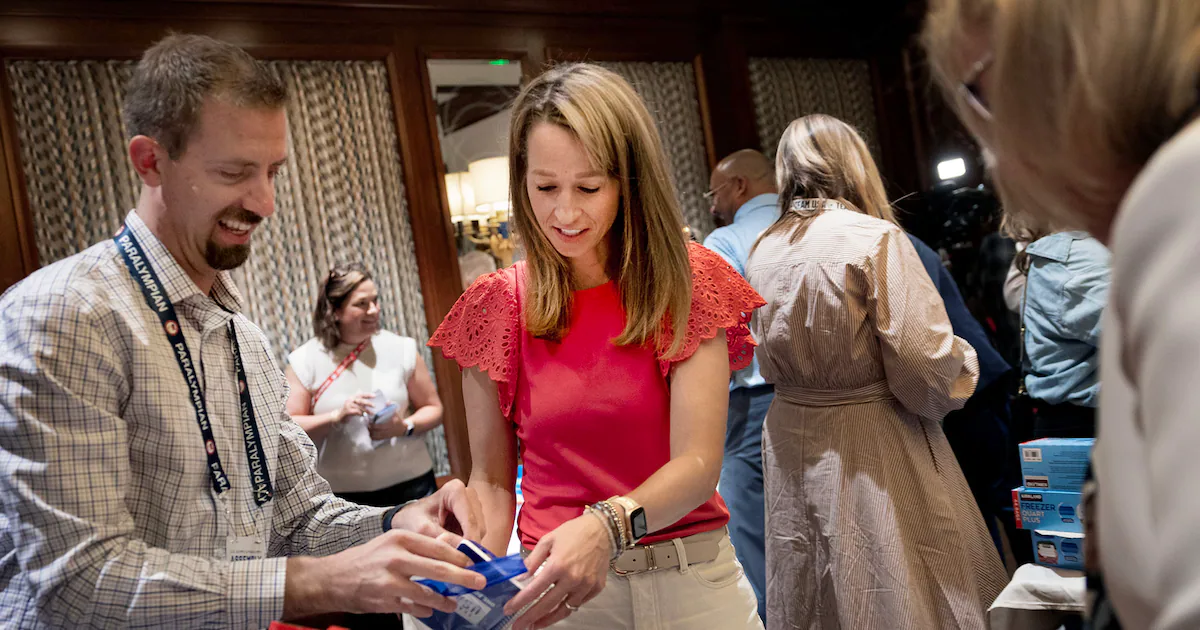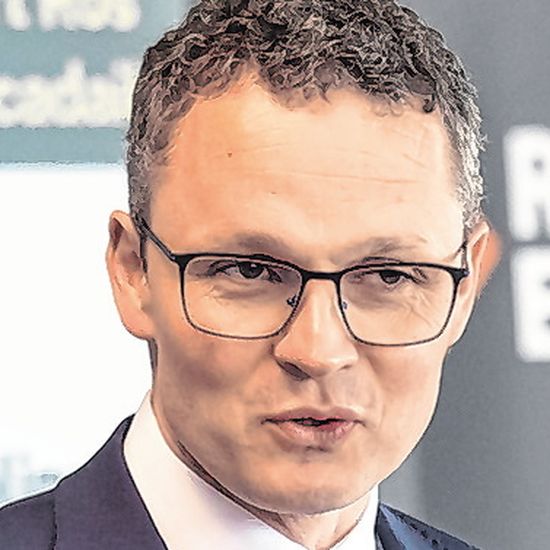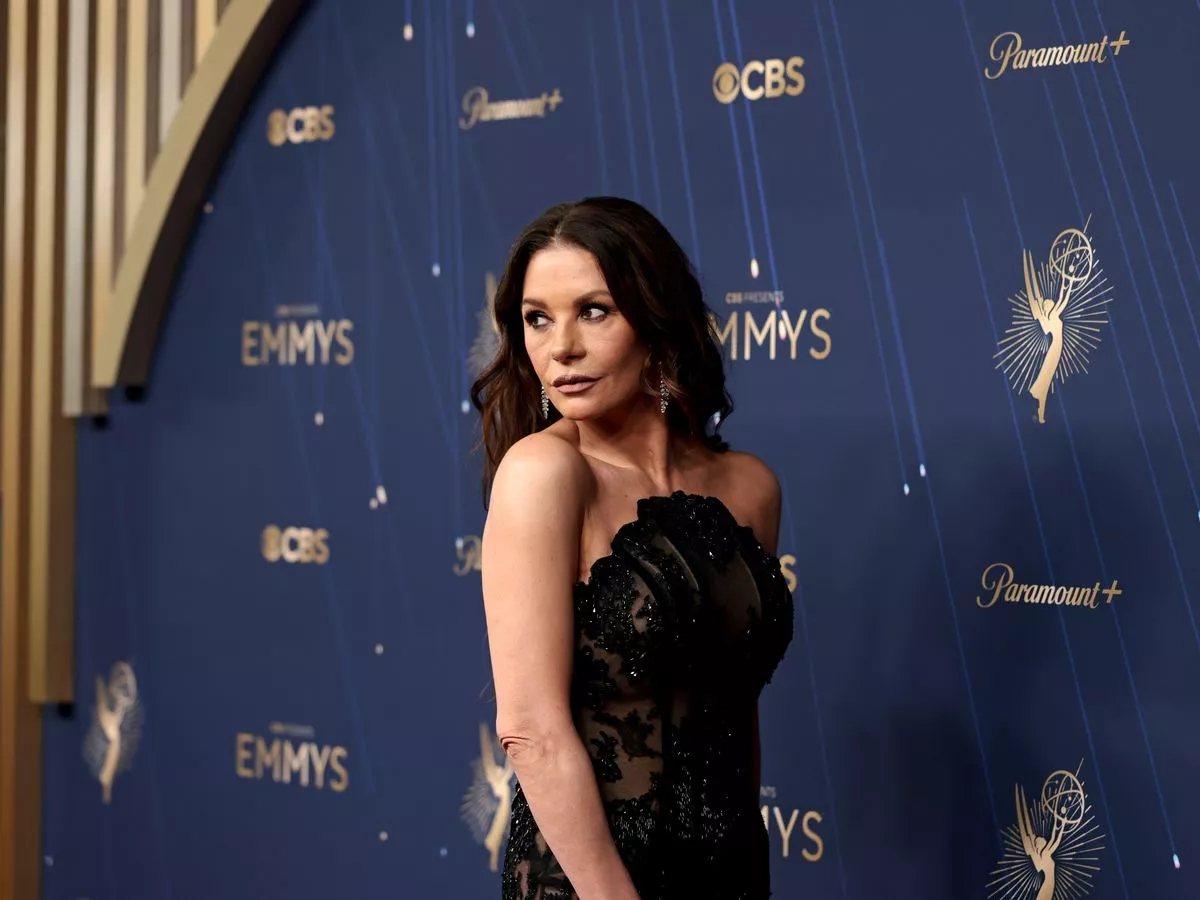
Abby Cox, Utah’s first lady, never stopped stuffing plastic pouches with juice bags, snacks, notebooks and pens as she explained the purpose behind Thursday’s service project at the U.S. Olympic and Paralympic Committee’s annual assembly.
The noontime project not only produced some 5,000 snack kits for Granite School District students, it gave some of the sports leaders from around the country in Utah this week a chance to see “what Utah does best and that’s serving and giving back,” Cox said.
“We love to show the world with the Olympics here that this is how we do business,” she said. “If I have a whole bunch of people together, we should put them to work. That’s my mantra. We should show up.”
The kits, intended to help prevent underserved children from going hungry during the school day, are a way of “connecting with people and especially taking care of our youngest citizens,” the first lady said. “A lot of times they’re not having bad behaviors. They’re just ‘hangry.’”
Aron McGuire, the Colorado Springs-based CEO of USA Bobsled/Skeleton, was among the dozens of people taking a break from Olympic meetings to pack snack kits at the Little America Hotel in downtown Salt Lake City.
McGuire, who is also vice chairman of the USOPC’s National Governing Bodies Council, said such efforts are part of the Olympic movement.
Unlike in many other countries, Olympic sports aren’t government funded in the United States, meaning “it comes down to sponsorships and donations so anytime we have an opportunity to give back, we like to do that,” he said.
For his sport’s national governing body, that includes inviting local youth to an annual training camp and letting them interact with elite-level athletes, an experience that’s valuable for everyone involved, McGuire said.
While putting together snack kits might be a different type of service project, he said “the goal is always the same, how can we go to a community, have a positive effect and make some great connections.”
Ogden’s Bill Schuffenhauer, a bobsledder who won a silver medal at Utah’s first Winter Games in 2002, said Thursday’s effort was “just normal for Utah, the service we provide, how we help in the community and just give back. I think that’s what makes Utah so unique.”
Schuffenhauer, who grew up on the streets and in foster homes, said service is “not a religious thing. It’s a human being thing, right, the more we can provide opportunities to support other organizations and individuals.”
As members of the Granite Education Foundation replenished the crowded tables with supplies, USOPC Chair Gene Sykes said the busy room exemplified what the Olympics stand for “100%. Salt Lake City, Utah, represents exactly what the Olympic values are about.”
Sykes, also a member of the International Olympic Committee that named Utah the host of the 2034 Winter Games last year, said examples of bringing people together are especially needed now.
“The more there is evidence of how people work together in a spirit of cooperation and,” he said, ”with a big mission, that is fantastic. That is what the Olympic and Paralympic experience is all about and Utah reflects that.”



